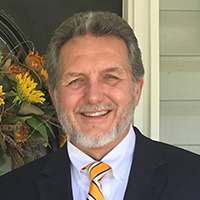Glenwood Misdemeanor Lawyer, Alabama
Not enough matches for Glenwood Misdemeanor lawyer.
Below are all Glenwood Criminal lawyers.
James A. Jacobs
✓ VERIFIEDAccident & Injury, Divorce & Family Law, Estate, Social Security -- Disability, Criminal
First licensed to practice law in Alabama in 2003, Attorney James A. Jacobs is a sincere and compassionate professional who cares about his clients an... (more)
Alyse Phillips Fowler
Criminal, Divorce & Family Law, Estate, Child Custody
Status: In Good Standing Licensed: 7 Years
James Mccollum Parker
Divorce, Construction, Americans with Disabilities Act , Felony
Status: In Good Standing Licensed: 33 Years
January Blair Ellis
Lawsuit & Dispute, Family Law, Criminal
Status: In Good Standing Licensed: 18 Years
Matthew Michael Baker
Lawsuit, Divorce, Criminal, Civil & Human Rights
Status: In Good Standing Licensed: 22 Years
Timothy Jon Magee
Real Estate, Estate, Criminal, Bankruptcy & Debt
Status: In Good Standing Licensed: 40 Years
Wayne Carter
Social Security, Divorce & Family Law, Criminal, Medical Malpractice, Divorce
Status: In Good Standing Licensed: 26 Years
John Talbot Jones
Juvenile Law, Real Estate, Traffic, Lawsuit & Dispute
Status: In Good Standing Licensed: 14 Years
Leon Merrill Shirley
Divorce & Family Law, Accident & Injury, Criminal
Status: In Good Standing Licensed: 48 Years
Griffin Merrill Shirley
Divorce & Family Law, Criminal, Insurance, Accident & Injury
Status: In Good Standing Licensed: 20 Years


